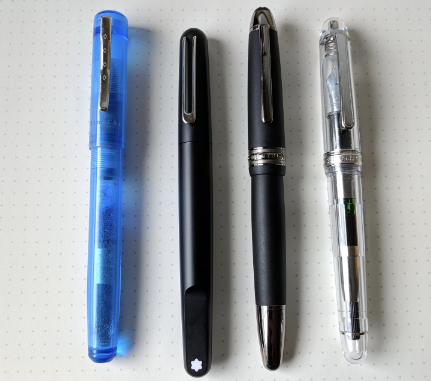
Montblanc pens, known for their luxury and craftsmanship, use a variety of manufacturing techniques, but injection molding is not the primary method for creating their iconic pens. Here’s an overview of how Montblanc pens are typically manufactured and why injection molding is not the main process used:
Manufacturing Process of Montblanc Pens
1. Materials and Components
- Precious Resins and Metals: Montblanc pens are often made from high-quality materials such as precious resins, metals (like gold and platinum), and celluloid. These materials contribute to the pen’s luxury feel and durability.
- Handcrafted Elements: Many components, especially those made of precious metals, are handcrafted to ensure precision and quality.
[elementor-template id=”4330″]
2. Production Techniques
- Hand Assembly: Montblanc pens involve a significant amount of hand assembly. Skilled craftsmen meticulously assemble the various components, ensuring that each pen meets the brand’s high standards.
- Lathe Turning: For some parts, especially those made of precious metals, lathe turning is used to achieve the desired shape and finish.
- Polishing and Engraving: After assembly, the pens are polished to a high shine, and any engravings (such as the Montblanc star logo) are added, often by hand or with precise engraving machines.
3. Quality Control
- Rigorous Testing: Each pen undergoes rigorous quality control checks to ensure it writes smoothly and meets the brand’s aesthetic and functional standards.
- Final Inspection: Before leaving the factory, each pen is individually inspected to ensure it meets Montblanc’s exacting standards.
Why Injection Molding is Not the Primary Method
1. Material Constraints
- High-Quality Resins and Metals: Montblanc uses high-quality materials that are not typically suited for standard injection molding processes. Precious resins and metals require specialized handling and finishing processes that go beyond injection molding.
2. Craftsmanship and Detail
- Handcrafted Precision: Montblanc’s reputation is built on the precision and craftsmanship of its products. Hand assembly and finishing allow for the detailed work and quality control that mass-production techniques like injection molding cannot easily replicate.
[elementor-template id=”4331″]
3. Brand Image and Perception
- Luxury Branding: The use of handcrafted techniques aligns with Montblanc’s branding as a luxury manufacturer. The perceived value of handcraftsmanship adds to the allure and prestige of owning a Montblanc pen.
Conclusion
While injection molding is a common manufacturing process for many plastic products, it is not the primary method used for Montblanc pens. Instead, Montblanc relies on high-quality materials, hand assembly, and meticulous craftsmanship to produce their luxury writing instruments. This approach ensures that each pen meets the brand’s high standards of quality and exclusivity.
Related Conten: Injection Molding Factory
 DTG Mould Trade Process |
|
| Quote: | According to sample, drawing and specific requirement. |
|---|---|
| Discussion | Mold material, cavity number, price, runner, payment, etc. |
| S/C Signature | Approval for all the items. |
| Advance | Pay 50% by T/T |
| Product Design Checking | We check the product design. If some position is not perfect, or can not be done on the mould, we will send customer the report. |
| Mold Processing | Send report to customer once each week |
| Mold Testing | Send trial samples and try-out report to customer for confirmation |
| Mold Modification | According to customer’s feedback. |
| Balance Settlement | 50% by T/T after the customer approved the trial sample and mould quality. |
| Delivery | Delivery by sea or air. The forwarder can be designated by your side. |
 |
|
